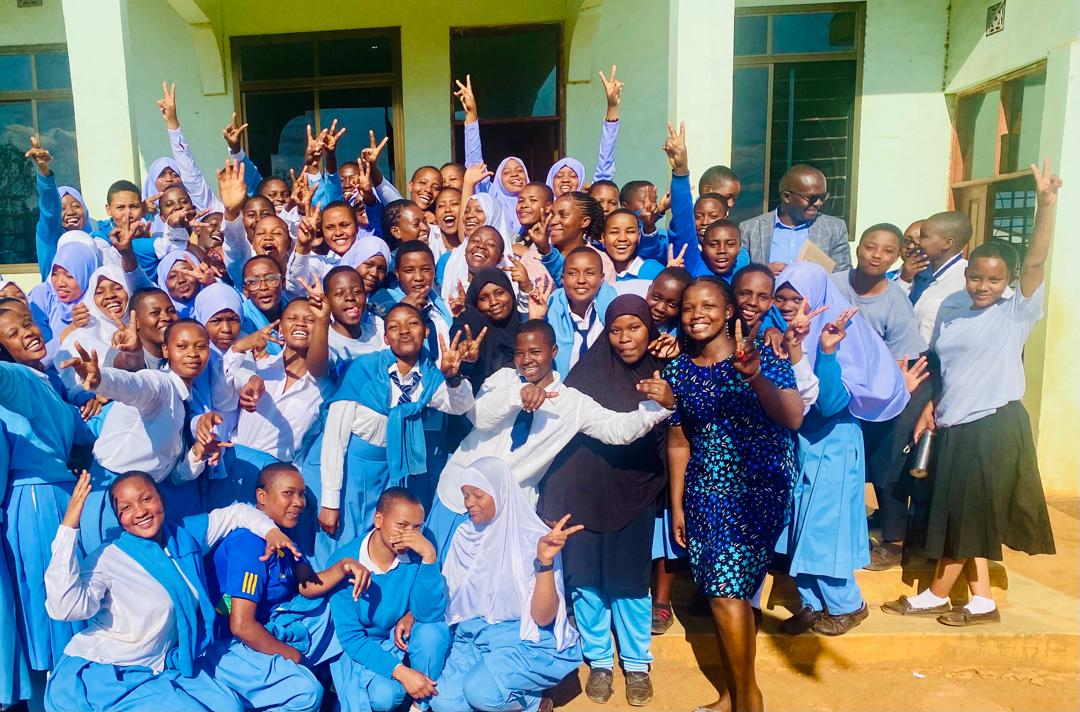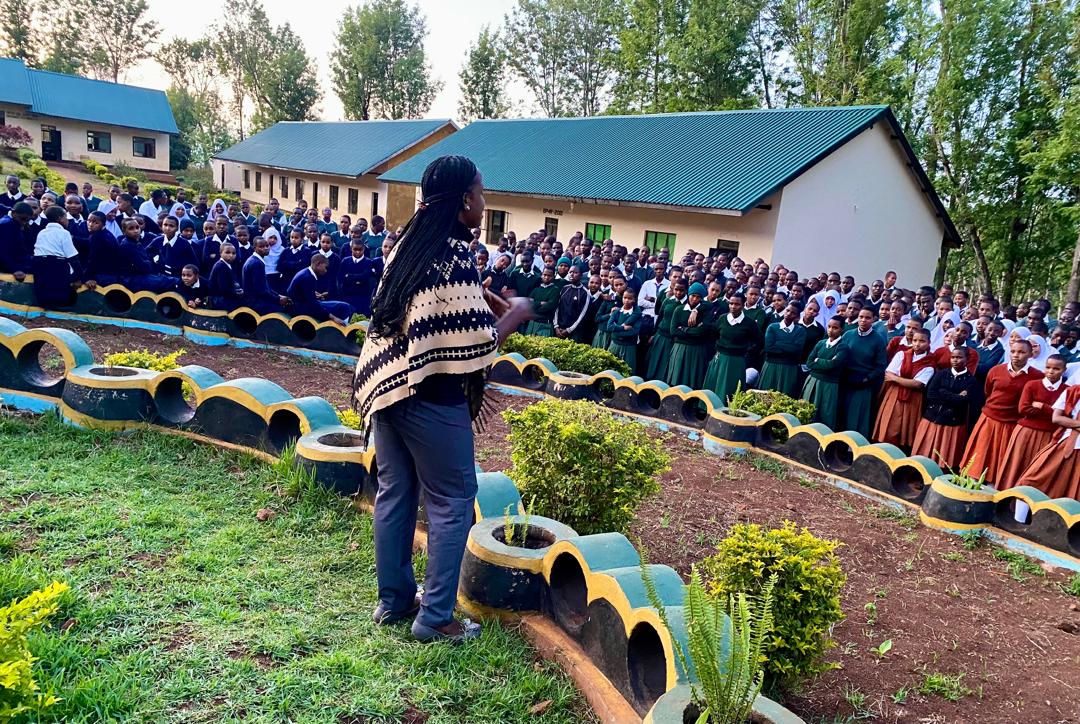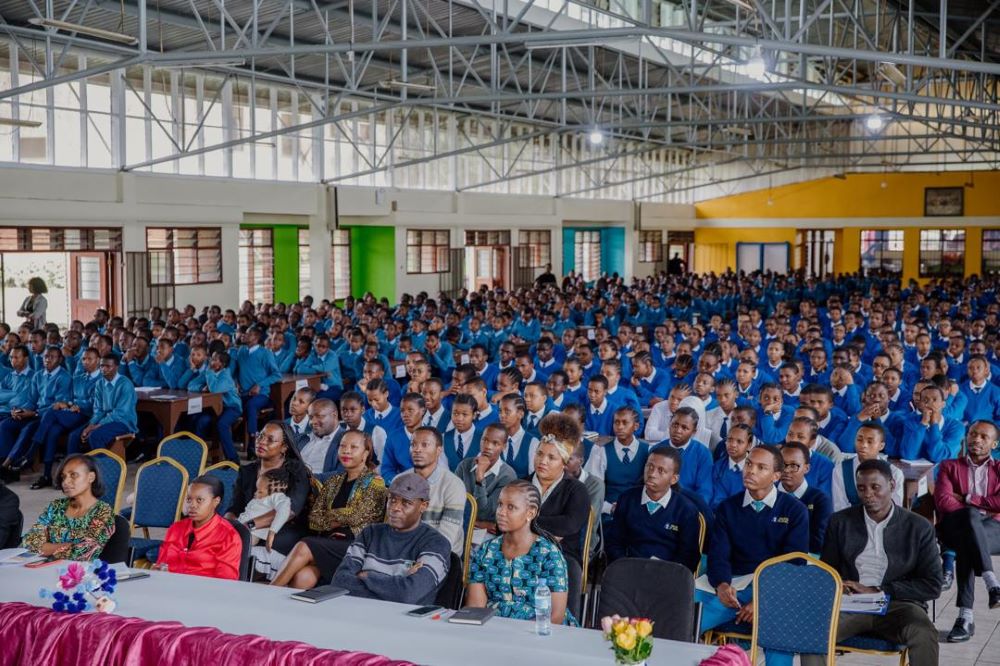Science, Technology, Engineering, and Mathematics (STEM) careers offer promising solutions to global challenges, including poverty (SDG 1) and inequality (SDG 10). However, in Tanzania, the gender gap in STEM fields is still wide. According to UNESCO, women make up 40% of university enrollment in Tanzania, among them, only 24% are pursuing STEM-related courses. This highlights the urgent need to inspire and empower young women to embrace STEM and pursue careers that can drive change.
In response to this challenge, the HEET project at Sokoine University of Agriculture (SUA) under its gender component, recently embarked on a STEM outreach initiative in Manyara Region. The team included a group of individuals (Lecturers) from SUA, and the CEO of GESGEMO, Ms. Jenipher Tairo was among them. The program aimed to raise awareness about the diverse and rewarding opportunities in STEM fields, particularly for young girls, and to encourage them to consider these fields as potential career paths. It was also an opportunity to create awareness of diverse STEM courses offered by the Sokoine University of Agriculture (SUA).

Ms. Jenipher Tairo (CEO GESGEMO) inspiring students at Tlawi Secondary School
Reaching Young Minds Across Manyara
The outreach program managed to reach over 11,000 students, including 6,598 girls, and across 15 schools in the region. By offering interactive sessions, and talks from successful female role models in STEM, the program helped break down the stereotypes that often discourage young girls from pursuing STEM subjects.
This exposure to the real-world applications of STEM in everyday life helped students better understand the relevance of these subjects and sparked a new interest in science and technology. As a result, many students began to view STEM not just as a set of abstract concepts, but as a potential gateway to solving local and global challenges and creating a brighter future.
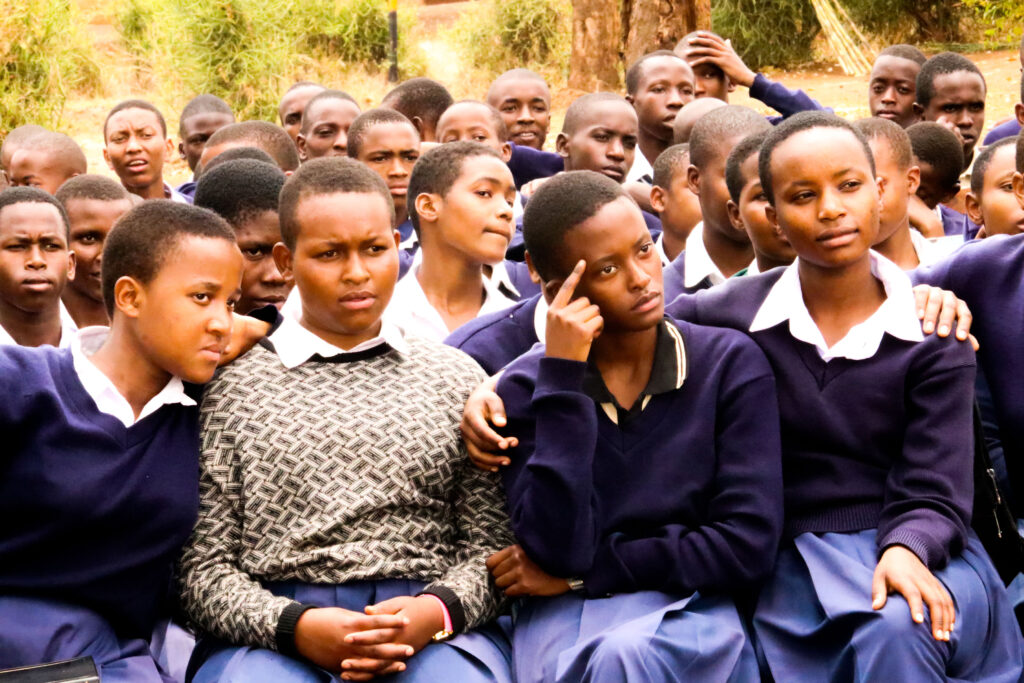
The Power of role models
One of the most impactful aspects of the initiative was the engagement of female lecturers and professionals who served as role models. These women shared their journeys into STEM careers, offering insights into how they overcame obstacles and succeeded in male-dominated fields. Their stories were especially powerful for the young girls in attendance, providing them with tangible examples of women who had not only navigated the challenges of STEM education but had also thrived in their careers.
These role models helped to challenge the prevailing gender stereotypes around STEM and encouraged young girls to believe in their potential. By seeing successful women in STEM, the girls were able to envision themselves in similar roles, boosting their confidence and encouraging them to pursue their passions.
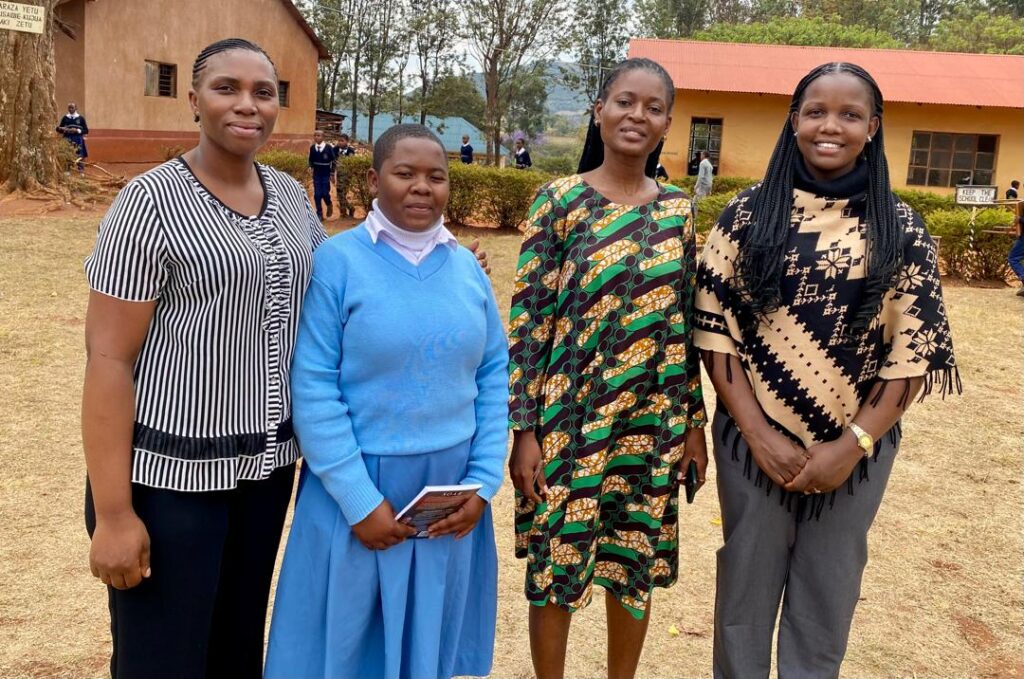
From left; Dr. Magessa, student from Chief Sarwatt Secondary, Engineer. Suzan and Ms. Tairo
Challenges
While the outreach initiative was a success, several challenges were identified that must be addressed to ensure continued progress:
- Low Student Confidence: Many students, particularly girls, lacked confidence in their ability to succeed in STEM fields. This was often exacerbated by societal norms that placed limitations on what girls could achieve.
- Teacher Capacity: Many secondary school teachers need additional training to effectively teach STEM subjects, particularly in ways that engage female students and encourage their participation.
- Infrastructure Constraints: Schools in the region often face overcrowded classrooms and inadequate facilities, which can hinder the learning experience and make it difficult to engage students in hands-on STEM activities.
- Misconceptions about STEM: misconceptions about STEM, viewing it as difficult, expensive, or inaccessible. These barriers prevent some from considering STEM as a viable career option.
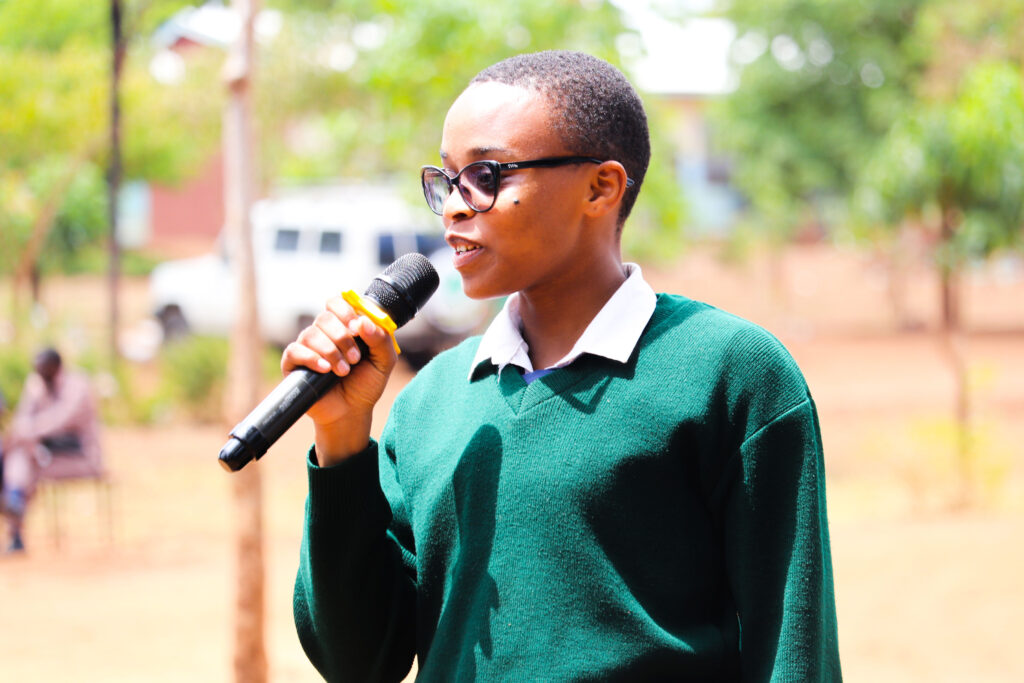
One of the students from Babati Day Secondary School explaining the challenges they face in pursuing STEM careers
To overcome these challenges, the following steps are essential:
- Promote STEM Education: There is a need to raise awareness about the benefits of STEM education and its potential to address real-world problems. Efforts should focus on demystifying STEM subjects and showing how they can be both engaging and relevant.
- Mentorship and Role Models: Connecting young women with accomplished women in STEM will provide much-needed guidance and inspiration. Mentorship can be instrumental in helping girls develop the confidence to pursue STEM fields.
- Capacity Building for Teachers: Teachers play a crucial role in shaping students’ perceptions of STEM. Professional development programs should be offered to help educators improve their STEM teaching methods, with a focus on fostering an inclusive environment for female students.
- Advocacy for Policy Change: Advocating for policies that promote gender equality in STEM education and careers is critical. This includes encouraging government and institutional support for initiatives that address the barriers women face in STEM fields.
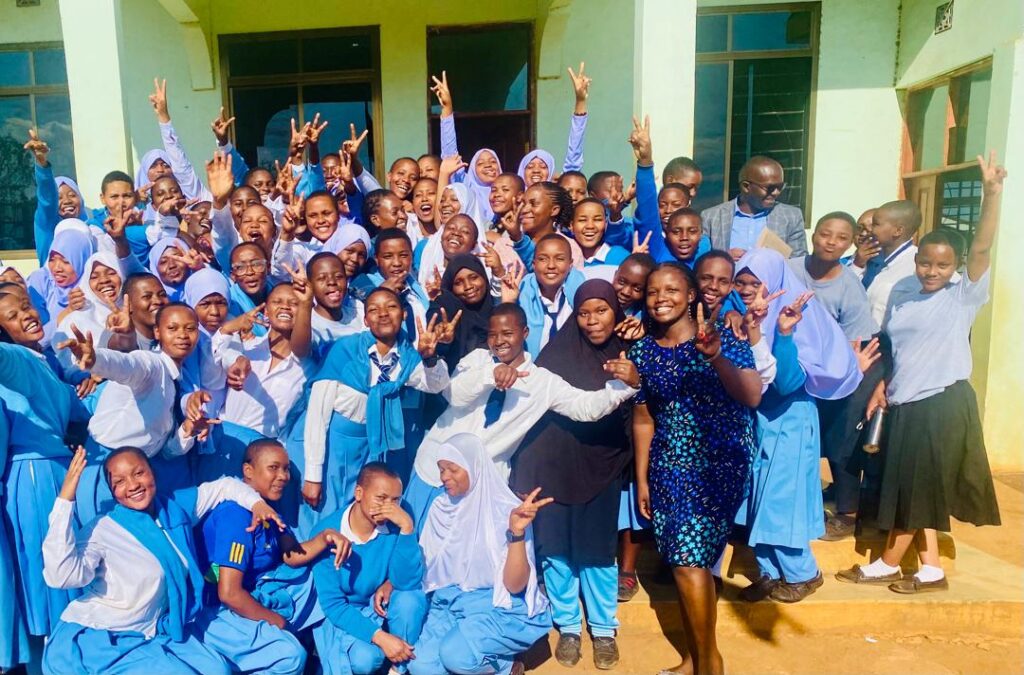
Some of the students from Nangwa girls Secondary School excited after the session
Empowering young women to pursue STEM careers is not just about individual success—it’s about building a future where women contribute to solving the world’s most pressing issues. GESGEMO is committed to continuing this important work in Manyara and beyond, helping to create a generation of confident, capable female leaders in STEM.
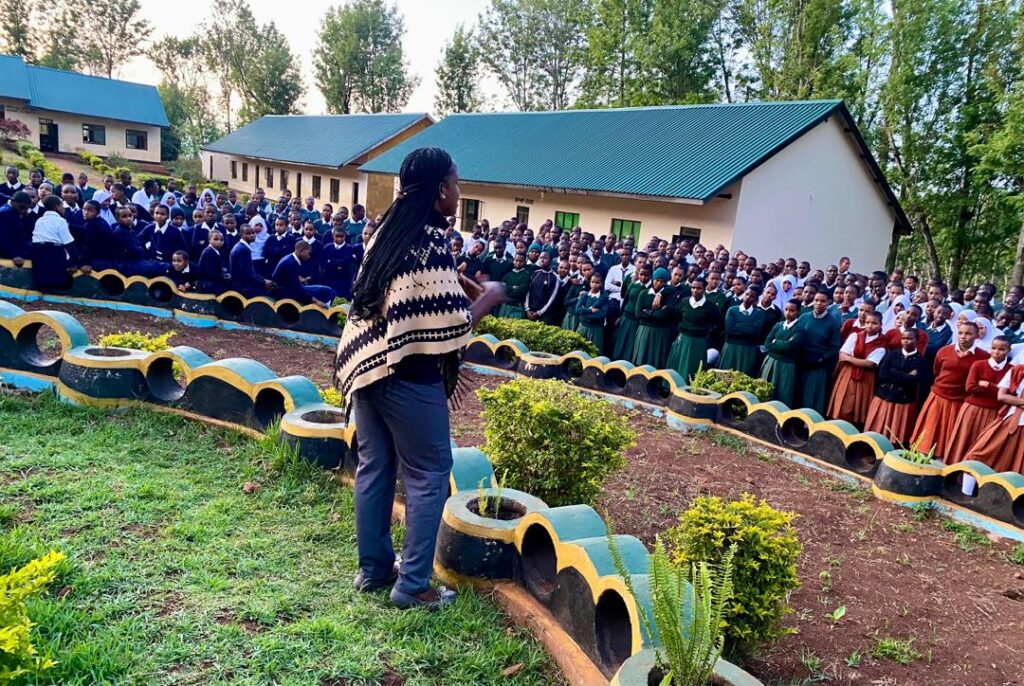
We invite like-minded individuals and organizations to partner with GESGEMO in this mission. Together, we can build a stronger, more inclusive future for Tanzania and the world, where every young woman has the opportunity to reach her full potential and contribute to innovation and change.
Join us in empowering the next generation of female STEM leaders.
#SDG1 #SDG4 #SDG5 #SDG9 #SDG10 #NoPoverty #QualityEducation #GenderEquality #IndustryInnovationandInfrastructure #ReducedInedualities

